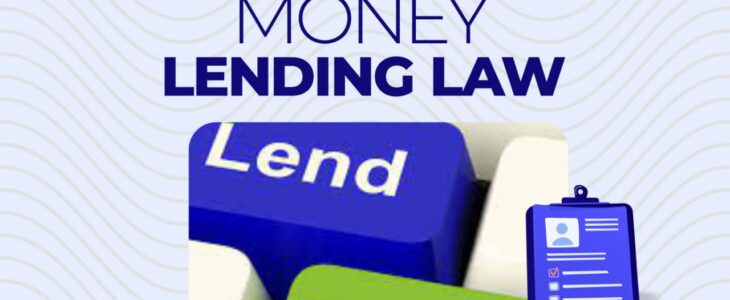
The consumer lending sub-sector in Nigeria is rapidly growing in terms of the number of market entrants (over 200 loan companies operating in the country), the licensing requirements and regulatory changes introduced to address consumer complaints against some business malpractices like privacy rights violations and unlawful debt recovery procedures. In view of the country’s huge population, relative political stability, technology infrastructures and friendly business environment, Nigeria remains a choice destination for doing business in Africa.
However, just like in the Nigerian gaming sector, there are two-level licensing regimes for digital lending business in Nigeria, namely: money lender by the local authority of the state/municipal region where the company seeks to do loan business, and/or federal licence from a federal licensing agency, which permits the licensee to render loan services across the entire country. For example, a digital lending company can get a finance company licence or micro-finance bank licence from the Central Bank of Nigeria or a moneylender certificate and licence from the Magistrate’s Court and Ministry of Home Affairs (as applicable in Lagos State), depending on the intended geographical coverage of its operation.
Irrespective of the type of licence, every digital loan company doing business in Nigeria now has additional mandatory post-licence registrations with some other federal agencies to be discussed below.
Please note that it is an offence to do any form of lending business in any part of Nigeria, without the relevant licence. It is, therefore, important to seek legal advice from lawyers/consultants on the choice of location and licensing requirements for ease of market entry and recovering debts without regulatory problems.
YOU CAN READ ALSO:
- HOW TO SET UP A DIGITAL LENDING COMPANY IN LAGOS
- HOW TO SET UP A DIGITAL LENDING BUSINESS IN KENYA
- HOW TO SET UP A DIGITAL LENDING COMPANY IN RWANDA
- HOW TO SET UP A DIGITAL LENDING COMPANY IN GHANA
There are few developments in the fintech lending space in Nigeria that should interest investors who seek to set up a digital lending business in any part of Nigeria.
Mandatory Registration with the FCCPC: the Federal Competition and Consumer Protection Commission (“FCCPC”) is a Federal Agency established by the FCCP Act of 2018 in charge of consumer protection in Nigeria, with mandate to develop and promote fair, efficient and competitive markets in Nigeria, facilitates citizens’ access to safe products and protection of consumer rights against bad business practices. However, following public outcry against bad practices amongst digital lenders, the FCCPC in conjunction with some key regulators and law enforcement agencies formed a Joint Task Force Committee not only to regulate the digital lending space but also to curb the recklessness of some online lenders’ flagrant breaches of the law, violations of citizens’ privacy rights and doing money lending business in Nigeria without any local business registration or licence. The FCCPC-led Committee saw a lacuna in the existing regulatory framework and, consequently, introduced the Limited Interim Regulatory/Registration Framework and Guidelines for Digital Lending 2022 (“Digital Lending Guidelines 2022“).
The Digital Lending Guidelines introduced, for the first time, a mandatory post licence registration with the FCCPC without which a digital lending company may be unable to operate its business fully, list its App on Google Playstore or integrate its lending platform to any payment solutions providers in the country. Since the year 2022, when the Digital Lending Guidelines came into force, the FCCPC has processed over 200 applications for registration as digital lenders. See the List of Approved Fintech/Digital Lenders(with Full Approval) and Provisionally Approved Fintech/Digital Lenders in Nigeria.
Please see below our previous article on HOW TO REGISTER A DIGITAL LENDING COMPANY WITH FCCPC
Mandatory Registration with the Nigerian Data Protection Bureau (“NDPB”): As part of the regulation of the processing and use of consumer data, the Federal Government of Nigeria through the National Information Technology Development Agency (“NITDA”) introduced the Nigerian Data Protection Regulation 2019 (“NDPR”). This piece of subsidiary legislation introduced a mandatory registration and regulation of data processing in Nigeria. Based on the NDPR, the FCCPC has, in the Digital Lending Guidelines, insisted on mandatory registration of digital lenders with the NDPB as a precondition for its (FCCPC) approval for doing digital lending business in Nigeria.
The registration with the NDPB can only be processed by a licensed Data Protection Compliance Officer (“DPCO”) who must submit a number of documents including the company’s privacy policy, terms and conditions, data incident register, evidence of appointment of a Data Protection Officer who is knowledgeable in, at least, the fundamentals of data privacy, etc. Without the certification by the NDPB, the FCCPC will not approve the registration of a digital lending company in Nigeria.
Mandatory Registration with MoneyLenders Association or Fintech Association of Nigeria: This registration requirement is another new introduction of the Digital Lending Guidelines 2022, which provides that every digital lending company must provide evidence of membership of a trade or professional association. This registration requires presentation of incorporation documents, operational licence and payment of registration and membership subscription fee. The two notable and relevant associations are Moneylenders Association of Nigeria and the Fintech Association of Nigeria. Please note that there is a Finance Houses of Nigeria, which is an association of Finance Companies which are licensed and regulated by the Central Bank of Nigeria.
Federal Government, Google Bars Digital Lenders from Accessing Customers’ Pictures and Contacts: Effective from 31st May 2023, online loan companies will cease to have right to access or use any customer’s pictures or contacts in the companies’ loan recovery activities. This introduction of this restriction has become necessary to curtail the invasion of customers’ privacy by online loan companies. In same vein, the tech giant, Google, has also announced in its policy update a decision to restrict digital loan companies’ access to their customers’ pictures and contacts in Nigeria, India, Indonesia, the Philippines and Kenya to curb the intrusive recovery procedures by loan companies’ agents. Though the regulation is expected to impact on the processing time and approval of loan applications, it is nevertheless deemed to be a welcome development as part of the efforts to sanitize the consumer lending sub-sector.
Lagos State Government Increases Moneylender Licence Fee: The Ministry of Home Affairs, the regulatory agency for licensing and supervision of digital money lenders in Lagos State, has announced (effective from March 2023) an increase of the licensing fee for money lending business in the State. Before the increment, the Ministry charged N225,000 for licence fee. However, with the announcement, the new licence fee is now N350,000 (Three Hundred and Fifty Thousand Naira). It is expected that some other states in Nigeria will also announce similar increment of money lender licence fees.
********************************************************
About KORIAT & CO.
We are a commercial law firm in Nigeria with network of lawyers and consultants in Ghana, Kenya and Rwanda. The above article is not legal advice and does not automatically make our readers our clients unless they specifically instruct us to act or represent them in any way.
We assist local and foreign clients to process company registration and business licences in Nigeria, Ghana, Kenya and Rwanda.
Please contact Koriat & Co. through admin@koriatlaw.com or 09067842241 (WhatsApp) if you require additional information about or assistance in making the application for a money lender’s licence.



